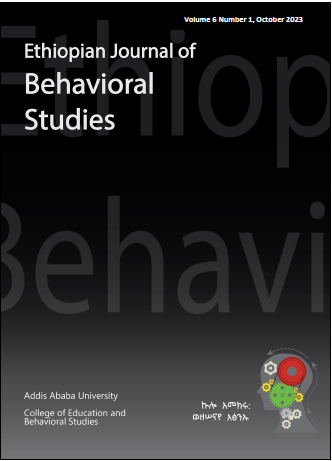Disruptive Behaviors and Family Conflict among School Adolescents in Harari Regional State
Keywords:
Adolescents, Family conflict, Disruptive behaviorsAbstract
Disruptive behavior in adolescents is a commonly reported challenge across Ethiopian adolescents in general and the Harari regional state in particular. However, studies examining how family factors (family conflict) contribute to disruptive behavior is rarely found. Hence, the present study aimed to examine the effects of family conflict on adolescents’ disruptive behaviors. Data were collected from 491 adolescent students (262 males, 229 females) using ‘the Problem Behavior Frequency Questionnaire,’ and ‘Family Conflict Scale. Correlational analysis and ANOVA were conducted to examine relationships and differences. The findings indicated that although the majority of participants reported modest levels of disruptive behavior, a considerable number of respondents, 189 (38.4%), reported a relatively high level of disruptive behavior. Likewise, out of the total 491 participants, 215 (43.7%) of them endorsed their particular family environments as highly conflicting. A statistically significant relationship was reported between family conflict and disruptive behavior in adolescents in that family conflict is a cultivating ground for disruptive behaviors in adolescents. Adolescents from the non-intact family structures were found to engage more in disruptive behaviors than adolescents from intact family structures. Statistically significant sex difference in adolescents’ disruptive behaviors was reported in such a way that male adolescents engage more in more disruptive behaviors than female adolescents. A statistically significant interaction effect between family structure and sex on adolescents’ disruptive behavior was reported, suggesting that male adolescents from non-intact family structures were found to be more prone to engage in disruptive behaviors than male adolescents from intact family structures. Likewise, female adolescents from non-intact family structures were more prone to disruptive behaviors than those from intact family structures.
